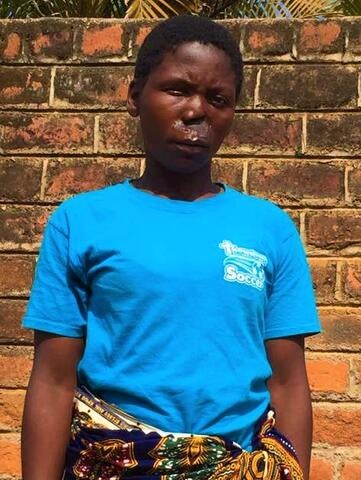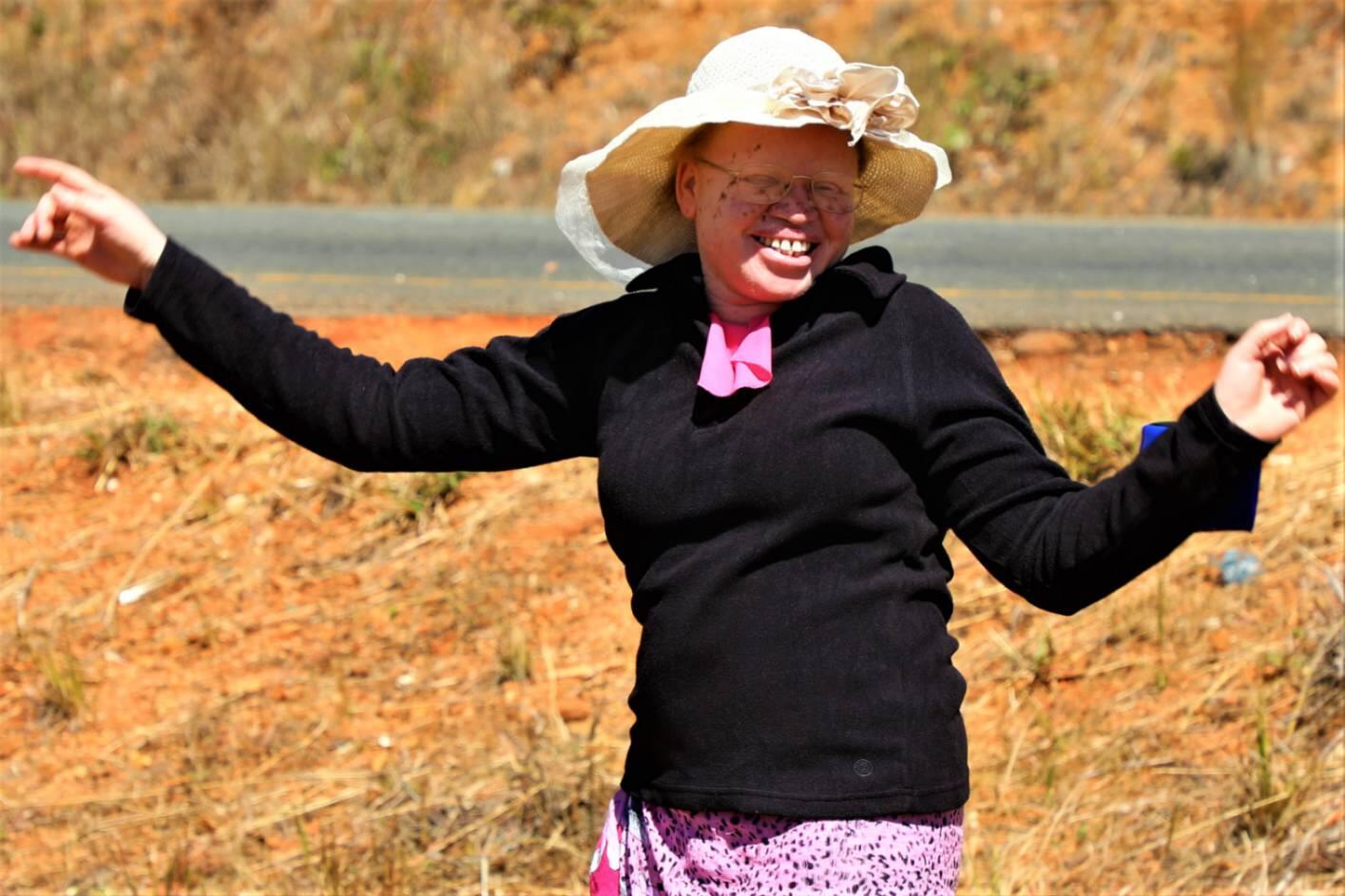MCHINJI, Malawi – One morning, Stella Chiwaka, a 28-year-old primary school teacher, visited a nearby health centre to get information and services on contraceptives. She was enthusiastic and had high expectations, but the response she received shocked her.
The male service provider’s questions startled her: “Do you experience sexual feelings?” and “are you sexually active?”
He told her that ‘people like her’ should not have sex but should rather live a life of exclusion.
Ms. Chiwaka, who has albinism, has repeatedly suffered stigmatization and had hoped not to experience it at the health centre. Left feeling angry and frustrated by the encounter, she walked out.
She has never returned to that health facility, nor any other, to seek family planning services. She now buys contraceptives at a pharmacy in her community.
Facing abuse due to disability
Onesta Chidyela, 27, from Dedza district, has one child. On the day she experienced menstruation for the first time, she excitedly told her mother about it. She knew that when her sisters had reached this milestone, they were taken to a secluded place and counselled about sexual health and cleanliness, and she was waiting for her turn. But hours passed, and then days turned into weeks. The moment she longed for never came.
Ms. Chidyela has a disability. She has faced stigma and discrimination throughout her life as a result. When she was pregnant, her mother-in-law abused her verbally.
“I was called so many animal names [and was told] I would give birth to a baby that would look like an animal,” she said. “I felt bad seeing this [was] coming from someone who should support me. After I gave birth I started using contraceptives; I do not want to become pregnant again.”
I was called so many animal names [and was told] I would give birth to a baby that would look like an animal
Empowering young people with disabilities
These two young women were among 125 disabled young people who received training from the Malawi National Association of the Deaf (MANAD) and Parents of Disabled Children Association of Malawi (PODCAM), with support from UNFPA, the United Nations Population Fund. This aimed to promote access to quality sexual reproductive health for the youth with disabilities.

Malawi/Leticia Nangwale
Young people face challenges in accessing family planning yet it is even more difficult for people with disabilities. As young people living with disabilities, they expressed frustration regarding how the community treats them because of their disabilities, let alone service providers.
While some like Stella are able to seek elsewhere the services they need, many young people with disabilities do not have adequate knowledge of their right to sexual and reproductive health, including access to family planning.
Without any credible sources of information on sexual health, it increases the likelihood that they will engage in risky sexual behaviours, leaving them especially vulnerable to unwanted pregnancies and HIV infection.
Young people with disabilities face many challenges in seeking SRHR information and are at greater risk of discrimination and exposure to HIV
Youth with disabilities typically fall off the radar when it comes to initiatives that tackle youth sexuality issues. “This has prohibited them from accessing sexual and reproductive health services and leaves them at greater risk of discrimination and exposure to HIV,” said Bruno Mwase, Programmes Officer and Sign Language Interpreter at MANAD. Investing in sexual and reproductive health for youth with disabilities is one of the most effective ways of promoting equitable and sustainable development, as well as leaving no one behind, he said.
Action for change
Ms. Chiwaka has high aspirations for her future. One day, she hopes, she will complete a degree in education. But for now she is focused on mobilizing other young people in her community, especially those with disabilities. She has formed the Nyuka Youth Club to provide a platform for them to discuss sexual and reproductive health and rights, including family planning.
Ms. Chidyela is using Implanon as her family planning method of choice which, she says, gives her a sense of empowerment and peace of mind. She does not regret her decision to use family planning.
While her marriage has ended, she is not daunted by this. “I am survivor,” she said. Her confidence in exercising her rights, such as the right to access sexual and reproductive health services, including family planning, has been strengthened by the training.
Family planning provides important protection as it can prevent unwanted pregnancies in an event where people who have disabilities are raped, she said.
UNFPA supports young people with disabilities
UNFPA supported a training of 125 young people with disabilities as well as 25 young people who have no disabilities, who are members of youth clubs on SRHR. The aim of including the latter group was to increase knowledge of the challenges faced by youth with disabilities, and to ensure that they are included as members of youth networks.
The project, a collaboration with the Ministry of Health, Ministry of Youth and the Ministry of Gender, began in October 2017 and was run over two months.
Another young woman who has benefited from the training was Mphatso Seda, from Mangochi. “Had […] I acquired the knowledge I have now, I would not have [had] a child at the age of 15,” she said. “Being a girl and [being] deaf, I have very limited access to sexual and reproductive health information; nonetheless, I have gained knowledge, which will enable me to make reproductive decisions for myself.”
By Leticia Nangwale and Henry Chimbali


